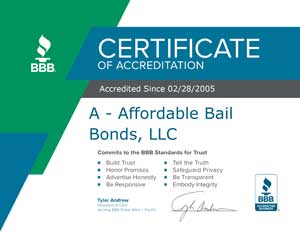Fault Lines: California’s Latest Bail Reform Proposal
Mike Whitlock, American Surety Company
This past Monday, upon stepping off the plane at LAX, my phone buzzed with an Emergency Alert: “Earthquake Detected! Drop, Cover, Hold On. Protect Yourself.” – USGS ShakeAlert.
Everyone in the airport received the same message, but no one dropped, covered, or held on to anything. It turns out the epicenter was in the San Diego area.
Speaking of quakes, the California bail industry is still feeling aftershocks from the 2019 passage—and subsequent repeal by referendum—of SB 10. Now comes another tremor: SB 562, a bill that would require bail agents to return most of the bond premium if a client’s case is dismissed or no charges are filed within a set period.
I was in California last week meeting with agents in Los Angeles and Sacramento. SB 562 was on everyone’s mind. The general feeling was: Here we go again—another attack on the bail bond profession.
Sometimes it feels like we walk around with a sign on our backs that reads, “Kick me.” Whenever there’s a perceived issue in the criminal justice system, legislators seem to look to the bail industry to extract their pound of flesh.
One glaring issue with SB 562 is what’s missing: there’s no requirement that private attorneys refund legal retainers, no mandate that the state reimburse impound fees, lost wages, or other costs incurred after an arrest. Yet bail agents—who provide a legitimate, licensed, and regulated service—are expected to eat the cost when the state fails to file charges.
Let’s not forget: the bail agent is often the only party who has earned their fee at the point of arrest. They invest in marketing, maintain staffed offices, pay for licenses, insurance, and compliance. When called upon, they underwrite the bond, secure indemnity and collateral, and dispatch personnel to post the bond—which can take hours.
Once the defendant is out, the agent’s role continues: monitor the defendant, ensure court appearances, manage risk. That’s the core of the bail bond transaction. The agent assumes financial risk in exchange for a fee. If the defendant skips, the bond is forfeited, and the agent has a fixed time to either produce the defendant or pay the bond. Produce or pay.
SB 562 was heard yesterday in the Senate Public Safety Committee. If passed, it moves next to Appropriations. It still has a long way to go before it can become law. The bail industry is watching closely and will engage as necessary. California bail agents should stay in close contact with their state association for updates.




